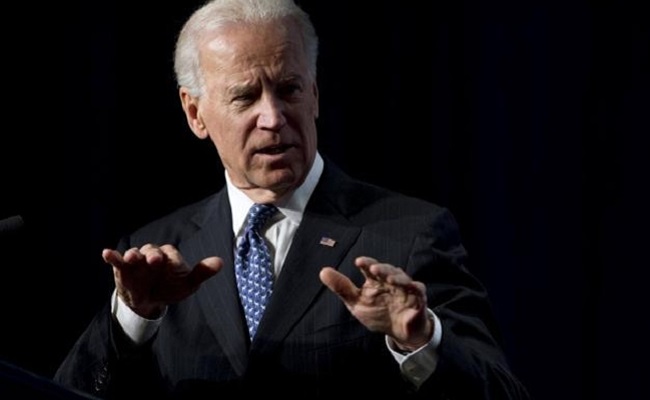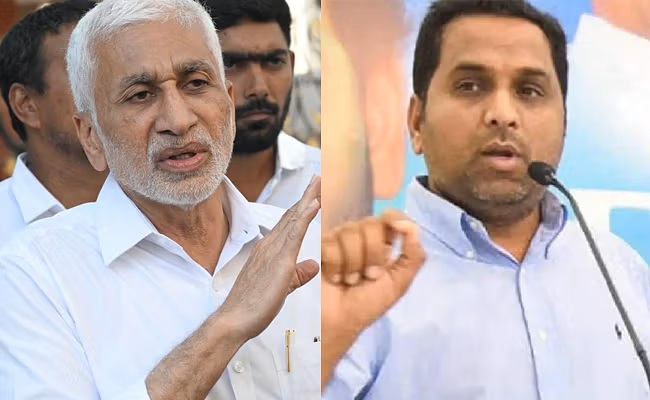
The Republicans-led Congress' move to impeach incumbent US President Joe Biden when House Speaker Kevin McCarthy ordered without a majority vote, directing three of the committees led by the GOP to inquire into business dealings Biden's son had overseas is "disturbing and the weakest ever".
TIME quoted impeachment experts saying the launch of an impeachment inquiry against the President has happened only a handful of times and there is less evidence implication of Biden of wrongdoing than in any of these previous inquiries that yielded no concrete results or evidence.
Speaker McCarthy took the rare step on Tuesday of launching an impeachment inquiry into President Biden and his son Hunter over the latter's foreign business dealings by passing the usual measure of taking a vote, as he was under pressure from his GOP colleagues, and his action was mainly to placate the Republicans to prevent a possible showdown between the Democrats and Republicans leading to a government shutdown by month-end that he wanted to avoid, media reports circulating in the US said.
The House has voted to impeach just three Presidents: Andrew Johnson, Bill Clinton, and Donald Trump, who was impeached twice. But even the launch of an impeachment inquiry against a President has only happened a handful of times. Two impeachment experts told TIME that there is less evidence implicating Biden of wrongdoing than in any of those previous inquiries.
"This is very disturbing for people who study past impeachments, because impeachment is really a very extreme measure," says constitutional scholar Philip Bobbitt, a professor at Columbia Law School and expert on the history of impeachment, who co-authored an updated edition of Charles Black's classic legal text, Impeachment: A Handbook, in 2018.
"I honestly don't know that there is any evidence tying the President to corrupt activities when he was Vice-President or now."
TIME also quoted Frank Bowman, professor emeritus at the University of Missouri School of Law and author of the book "High Crimes and Misdemeanors: A History of Impeachment for the Age of Trump", as saying that McCarthy's decision did not appear to be based on the evidence House Republicans have gathered thus far.
"Biden's Republican pursuers have got exactly zero, zip, bupkis, on any matter that might be impeachable," says Bowman.
The US Constitution empowers Congress to impeach and remove from office a President, Vice-President, or Federal Civil Officer for committing "treason, bribery, or other high crimes and misdemeanors". However, an inquiry is not a legal requirement for impeaching a President, and the rules around what constitutes one are poorly defined.
Setting apart the five previous Presidents, who faced impeachment proceedings ought to have been impeached and convicted, there was at least some evidence indicating that they committed misconduct.
When impeachment was imminent for President Richard Nixon, he resigned before the House could formally impeach him. It was preceded by a special prosecutor investigation examining his ties to the Watergate burglary, as well as a Senate Special Committee inquiry into the break-in that went beyond a year. Reporting by journalists suggesting that responsibility for the incident and attempts to cover it up stretched into the administration also led to the impeachment move.
Two decades later, a month before the House launched an impeachment inquiry into President Bill Clinton, independent counsel Ken Starr released a report outlining 11 possible grounds for impeachment, including lying under oath and obstructing justice.
"In every single case, there was very significant evidence of presidential wrongdoing before the formal inquiry was begun," Bowman said adding, "The House, and House leadership, took the responsibility of formally opening such an inquiry extremely seriously. Nancy Pelosi, in the first impeachment, resisted calls for impeachment of Trump for two years."
McCarthy's inquiry, Bowman suggests, lacks that discipline.
"What they're doing here is absolutely shocking," says Bowman, who added that House Republicans "have no interest at all in preserving the basic integrity of the process, or indeed their own power as legislators in legitimate opposition and tension with the executive branch".
House Republicans have spent all year investigating Hunter Biden in hopes of proving that Joe Biden profited off his son's business dealings, particularly while Joe Biden was Vice-President. There has been no conclusive evidence indicating Joe Biden did anything wrong.
The impeachment move refers to two cases : 1) That Joe Biden as Vice-President in 2017 was aware of Hunter Biden's involvement with the Ukrainian energy company Burisma and allegedly received bribery payments to promote the company in the US while sitting on their board. 2) Another charge against Hunter is that he illegally procured a gun while under the influence of cocaine -- US laws prohibit an individual from possessing a gun while under the influence of drugs. Republicans charged, Department of Justice quashed the case.
McCarthy had earlier indicated that the full House would hold a vote to open an impeachment inquiry into Biden. But such a vote would require the support of nearly every Republican in the narrowly-divided chamber. McCarthy went ahead launching the inquiry without a vote as 20 House Republicans expressed resistance to voting as full House vote could open them up to political liability.
The Speaker's decision to open the inquiry without a vote has precedent; Democrat Speaker Nancy Pelosi opened the second impeachment against former President Donald Trump following the January 6, 2021, attack on the US Capitol without an inquiry at all while the first impeachement was voted for.













